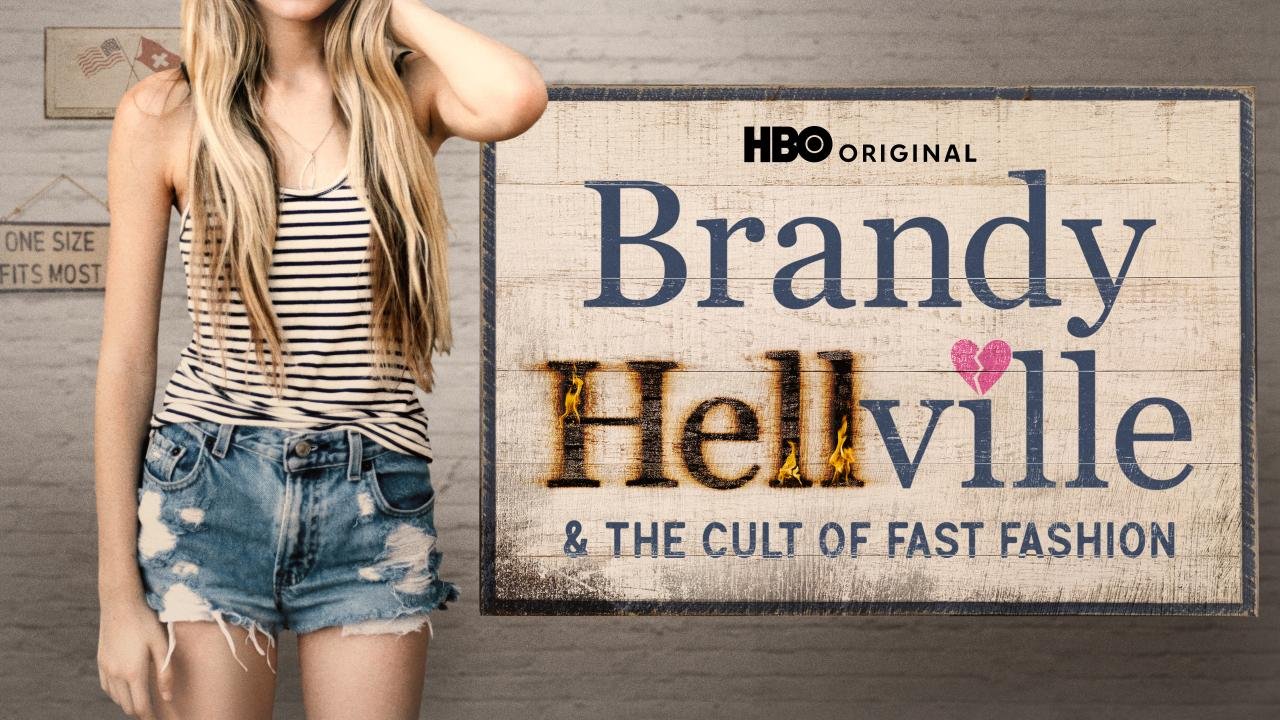HBO DOC ON BRANDY MELLVILLE, A CAUTIONARY TALE & CATALYST FOR POSITIVE CHANGE FOR THE FAST FASHION INDUSTRY
By: Janice Ronan
Everything has its price but what is the actual cost of fast fashion? That is the provocative question at the heart of "Brandy Hellville & The Cult of Fast Fashion," the shocking and informative documentary recently released on HBO Max. This explosive biography takes a deep dive into the controversies surrounding Brandy Melville, the fast fashion titan that has captivated teenage girls’ attention since the 2010s with its beachy, Cali-girl, cool aesthetic and celeb endorsements - all at ridiculously affordable prices. The public was unaware that the teenage dream was a real-life nightmare. Lurking behind the brand's fun, glossy image were serious issues involving CEO Stephan Marsan, including exclusionary sizing - one size, roughly XS/S, which encouraged eating disorders, serious allegations of racial discrimination and sexual harassment, from past and present store employees.
Eva Orner, the Director of the film, also shed light on Brandy Melville’s exploitation of factory workers and their mass contribution to environmental waste. Much of the Gen Z trendy clothing is manufactured at a factory in Prato, Italy that employs Chinese immigrants. Prato is well-known as a fast-fashion hub, some of which have exploitative labour practices. Filmmakers also journeyed to Ghana, where they filmed heaps and heaps of unwanted garments from the US and Europe piled up to no-end, clogging waterways. The Brandy Melville business model includes producing mass amounts of inexpensive items that are likely to be discarded this way.
“These are the values that are in this T-shirt: It is racism, it is antisemitism, it is exploitation, I’m hoping parents watch this and are horrified.”
~ Eva Orner, Director, Brandy Hellville & The Cult of Fast Fashion
But to every dark cloud…there is a silver lining. Public awareness brings a watchful eye and transparency pushes positive change - making way for a brighter and more inclusive future in the fashion industry. Constructive outcomes of this dark, cautionary tale are limitless. Educated and empowered consumers use their voice to demand for diverse representation - many retailers and industry leaders have rightfully opted to make diversity and inclusion their focal point when hiring staff and choosing models to represent their brands in ad campaigns. There has been a rise of body-positive brands and workplace educational initiatives as well.
“You will destroy these companies if the buying goes down 20 or 30 percent. It will have an enormous impact,” she said. “People think they’re powerless but they’re not.”
~ Eva Orner, Director, Brandy Hellville & The Cult of Fast Fashion
Many notable companies have flipped the narrative, making positive responses from accusations of greenwashing. H&M has pledged to accelerate its efforts and become fully transparent about its environmental impact by 2023. Meaning, sharing clear, accurate and relevant information about their supply chain, products, business standards and policies. This includes publishing a list of suppliers and disclosing the environmental impact of each product and other relevant data. They have also entered a global commitment with the Ellen MacArthur Foundation’s New Economy Initiative, whose vision is to eliminate all unnecessary plastic packaging, never letting plastic become waste.
Another comparable would be clothing company Abercrombie & Fitch, which received considerable public attention for racist T-shirts, illegal hiring (and firing) practices, and discriminatory / exclusionary remarks attributed to CEO Mike Jeffries. The company was also accused of discriminating against overweight women based on its refusal to sell sizes larger than 10. In 2019, the company overhauled its entire product design and marketing, in an effort to distance itself from the series of scandals that had plagued the brand in the previous decade. Under the leadership of Fran Horowitz, who became CEO in 2017, Abercrombie's sales and stock market value started to recover. She brought in a more conscious approach to marketing, which appealed to a more diverse group of consumers. In 2018, Business Insider called it the "biggest retail comeback of the year." The brand also focuses on social media and works with diverse influencers of all backgrounds and sizes, fully embracing inclusion and diversity. It is a true testament to positive change.
“I think we’re at a tipping point. A lot of young girls, like all the young women in the film — who are my absolute heroes for speaking out and being whistleblowers and being so brave — none of them are into buying fast fashion anymore.”
~ Eva Orner, Director, Brandy Hellville & The Cult of Fast Fashion
Orner called out Brandy Melville specifically with hopes that the film would inspire change. The last line of the film “We need to buy less” is written in large, bold print across the screen and intended to spark the realization that true power is in all of us - the hands of the customer.

